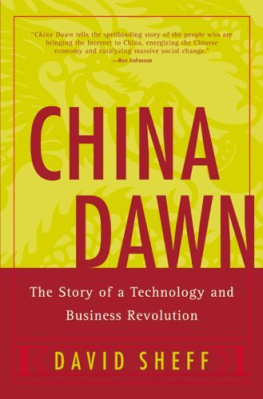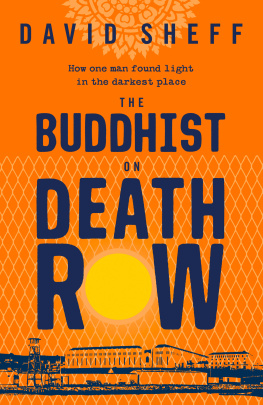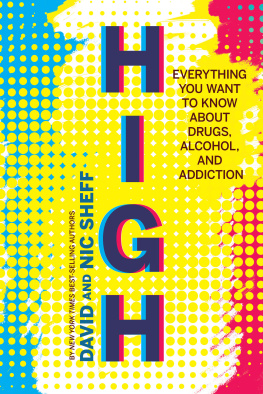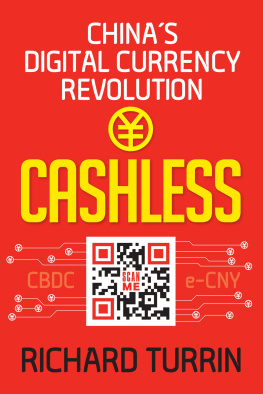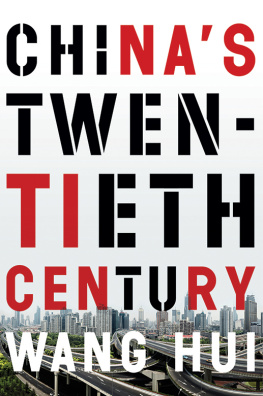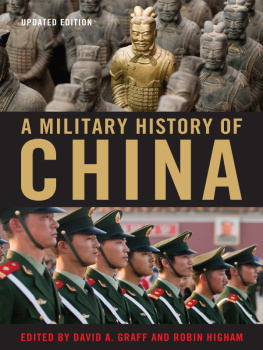David Sheff - China Dawn: Culture and Conflict in Chinas Business Revolution
Here you can read online David Sheff - China Dawn: Culture and Conflict in Chinas Business Revolution full text of the book (entire story) in english for free. Download pdf and epub, get meaning, cover and reviews about this ebook. year: 2009, publisher: HarperCollins, genre: History. Description of the work, (preface) as well as reviews are available. Best literature library LitArk.com created for fans of good reading and offers a wide selection of genres:
Romance novel
Science fiction
Adventure
Detective
Science
History
Home and family
Prose
Art
Politics
Computer
Non-fiction
Religion
Business
Children
Humor
Choose a favorite category and find really read worthwhile books. Enjoy immersion in the world of imagination, feel the emotions of the characters or learn something new for yourself, make an fascinating discovery.
- Book:China Dawn: Culture and Conflict in Chinas Business Revolution
- Author:
- Publisher:HarperCollins
- Genre:
- Year:2009
- Rating:5 / 5
- Favourites:Add to favourites
- Your mark:
- 100
- 1
- 2
- 3
- 4
- 5
China Dawn: Culture and Conflict in Chinas Business Revolution: summary, description and annotation
We offer to read an annotation, description, summary or preface (depends on what the author of the book "China Dawn: Culture and Conflict in Chinas Business Revolution" wrote himself). If you haven't found the necessary information about the book — write in the comments, we will try to find it.
China Dawn: Culture and Conflict in Chinas Business Revolution — read online for free the complete book (whole text) full work
Below is the text of the book, divided by pages. System saving the place of the last page read, allows you to conveniently read the book "China Dawn: Culture and Conflict in Chinas Business Revolution" online for free, without having to search again every time where you left off. Put a bookmark, and you can go to the page where you finished reading at any time.
Font size:
Interval:
Bookmark:



For Tiger Feng, my godson
And for Karen Barbour, a candle in the darkness
Enlighten the people generally, and tyranny and oppression of body and mind will vanish like evil spirits at the dawn of day.
THOMAS JEFFERSON
With our technology, enlightenment can flow through the taps like water.
EDWARD TIAN
Qihu nanxia.(Once you get on the back of a tiger its difficult to dismount.)
CHINESE EXPRESSION
Like Adding Wings to a Tiger
With Rice and Rifles
The Mysterious Island
What Is Happening to Our Country?
Chinese Mind
If You Build It
To Walk on the Water in Bare Feet
Chinese Capitalism with Western Characteristics
The Business of a Revolution
Click Dynasty
The eChina Syndrome
Bandwidth Dream
Mr. Venture and Mr. Capital
Let One Hundred Start-ups Blossom
The Tao of the Dow
Rousing the Sleeping Dragon
The Carp Has Leapt Through the Dragons Gate
Sleepless in Shanghai
The Long March to Cyberspace
It Is Better to Light a Candle Than to Curse the Darkness
Paper Cannot Wrap Up a Fire
Address to the First Annual Chengwei Conference, 2000

A t dawn, the coast road is shrouded in fog. On the horizon, the sun pierces the brume like a signal lamp on a great ship. My friend Bo Feng and I drive for an hour and park at a roadside dirt lot where we load up our backpacks and head out. Surfboards under our arms, we trudge to a secret spot on the California coast. Its a spectacular beach with blowing white sand dunes, playful harbor seals, and dive-bombing pelicans. The ocean comes alive here when the wind is offshore and the swell is strong and from the south. Were I to reveal the location, my surfer friends would think nothing of drowning me. They would be justified in doing so.
We pad along a brushy deer trail that leads to the beach and then a mile more in the sand. At lands end, we change into four-millimeter-thick wet suits, charge into the ocean, and paddle on our boards in the icy surf until we are past the breakers, where we await a set of waves. They arrive with respectable size and power. Held aloft by a steady offshore wind, they break in long, peeling curls.
China has no equivalent of wave surfingno beach breaks, no beach culture. So of course it was only after going to the West that Bo began to surf. Some would say that it was predestined. In Chinese, Bo means wave; in classical Chinese, Feng means to walk on the water in bare feet.
When I met him a decade ago, Bo was a busboy, waiter, dishwasher, and sushi chef working at Chinese and Japanese restaurants in Marin County across the Golden Gate Bridge from San Francisco. In the swiftest and most unforeseeable career change since Jesse Venturas, he is now an investment banker and venture capitalist, funding entrepreneurs in his native China. The entrepreneurs are the founders of a diverse group of information-technology start-ups with a common purpose: They are devoted to building the Internet on the Chinese Mainland, where the majority of people are without telephones, never mind access to the Net. When he talks about his work, its with sweeping emotion and momentous themes. My country is simultaneously going through what America went through in the 1900s and in the 1990sindustrializing, building an infrastructure, beginning to transform from a rural economy, and at the same time racing into the world economy based on communication and technology, Bo explains. Both highwaysliterally, the roadways, as well as the information superhighwayare being constructed at the same time.
Bo is a tall and glamorous figure who intrigues almost everyone who meets him. Hes mercurialnow warm and open, now contemplative and impenetrable. You dont want to miss what he has to say. His intelligence is curving, circumnavigating ideas and attacking them at unexpected angles. He observes the big themes in everyday events. You want to go where he goes.
Sitting in the green water with a sea otter that is nibbling its breakfast (the meticulously plucked-off legs of a still moving crab), I watch Bo as he readies for the lead wave in a set. Paddlingslowly at first, then hard and evenhe leaps atop his board and cuts up the waves face. After a quick turn, he slides down, his board shooting out a spray of white water.
The parallel to Bos life strikes me. Bo surfs on the water between China and the United States, and it is his ability to navigate the vast ocean that separates our two nations that makes him a leader of the latest revolution in Chinaa revolution with the potential to transform the life of more than a fifth of the worlds people. Few ride seamlessly between our world and his, but Bo makes it look easy. If only he surfed as well... As I watch, cringing, Bo slips, and his board shoots off in one direction while his body topples down the waves face. The breaking water pounds him. Just as he swims to the surface and gasps for air, a larger wave thrashes him. The metaphor has become more exact. Surfing as he does between China and America is fraught with peril. Conditions change without warning. One could easily be caught inside and swallowed up. Yes, one could drown.
Before I accompany him to China for the first time, I think I know Bo pretty well. In China, however, I realize that I only know half of him. The other half isnt exactly different, its just more: more speed, more urgency. The poles of his mood are exaggerated, reflecting urban China at this particular juncture in history. Its one of the most vibrant places on the planet, where each day has a life-or-death sense of purpose, despair, frustration, opportunity, dread, and hope. The only other place and time I have felt anything comparable was when I visited Moscow in 1987. I had been invited to participate in Soviet general secretary Mikhail Gorbachevs historic Peace Forum. There were Nobel Prize winners, clergymen, economists, physicists, global business leaders, artists, and writers. Gorbachev himself addressed us. So did Andrei Sakharov. Gore Vidal, sitting near me, observed, Democracy has come to the Soviet Union. The surest proof: At our meeting at the Kremlin, Claudia Cardinale entered the room and not one man in the place stood up to give her a chair. Norman Mailer said, The degree of openness in the Soviet Union is incredible. The last thing one expects to find is that the USSR is a place vibrant with hope and passion. We saw it outside the conference halls on the streets of Moscow and other cities we visited, where peopleSoviet citizens in train stations, on buses, on crowded market streetswere exuberant with expectation. On the famed Arbat in central Moscow, a group of students agreed to pose for a photograph in front of a statue. Before I clicked the shutter, an elderly woman rushed forward, her arms waving. No make photo! she yelled. No make photo! It is prohibited! Then one of the students movingly stood up to her, speaking solemnly, her eyes aflame. No, she said. No more! It is allowed. We are free. It is Gorbachev time. Gorbachev had recently announced a new era of glasnost and perestroika, intended to liberalize and revitalize Soviet society, and the nations optimism (however short-lived it turned out to be) was palpable.
Next pageFont size:
Interval:
Bookmark:
Similar books «China Dawn: Culture and Conflict in Chinas Business Revolution»
Look at similar books to China Dawn: Culture and Conflict in Chinas Business Revolution. We have selected literature similar in name and meaning in the hope of providing readers with more options to find new, interesting, not yet read works.
Discussion, reviews of the book China Dawn: Culture and Conflict in Chinas Business Revolution and just readers' own opinions. Leave your comments, write what you think about the work, its meaning or the main characters. Specify what exactly you liked and what you didn't like, and why you think so.

